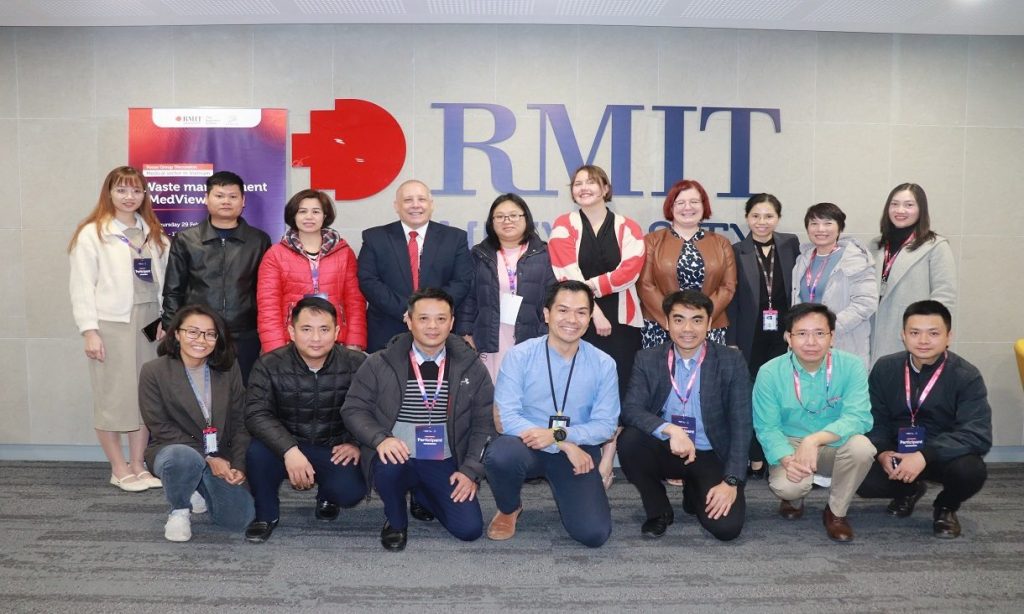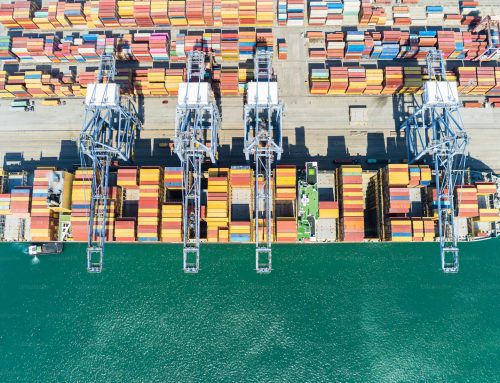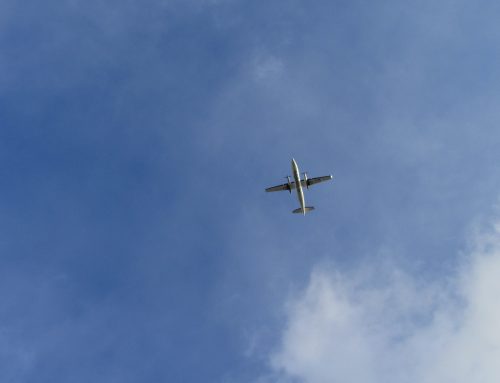By, in alphabetic order, Dr. Phuong (Emmy) Hoang, Dr. Seng Kiong Kok, Dr. Sarah Schiffling, Dr. Duc Trinh Tran and, Dr. Virva Tuomala
Hospitals and other healthcare facilities generate significant amounts of waste, much of which is challenging to manage due to its potentially infectious or toxic nature. While the use of single-use plastics are being phased-out in many households, their reduction in healthcare settings poses a greater challenge. In these environments, single-use plastics are often viewed as the safest or most convenient solutions to various issues.
The MedView project, funded by Business Finland, aims to address these challenges by focusing on improving medical waste management practices in Vietnam. The project is a collaboration effort between Hanken School of Economics in Finland and The Business School at RMIT Vietnam. Together, the project team seeks to identify innovation solutions for managing medical waste more effectively.
Recent legislation changes in Vietnam support a transition toward to circular economy practices, which encourage the reduction of raw material consumption and the minimisation of waste. In healthcare, this could involve disinfecting and reusing items, rather than discarding them after a single use, contributing to a more sustainable approach to medical waste management.
The topics garnered significant interest from waste management organisations and medical service providers. Many shared their expertise and insights in two MedView events in Ho Chi Minh City and Hanoi.
Participants highlighted that current infrastructure and processes are a major concern, exacerbated by severe overcrowding, particularly in Ho Chi Minh City, where the healthcare sector operates at approximately 200% of its available capacity. This results in the generation of vast amounts of waste, estimated at around 72 tons/day. Most of this waste is incinerated, while the remainder is sent to landfills by government-certified medical waste management service providers.

This approach to medical waste management creates environmental risks. Incineration generates greenhouse gases, and landfills can leak contaminated liquid into surrounding areas. Although the Vietnamese government is advocating for the implementation of circular economy practices, these initiatives are currently limited within the medical waste management sector.
In Vietnam, the primary method for disinfecting materials for re-use is autoclaving which utilises high pressure steam to eliminate harmful bacteria and viruses. Although autoclaving has its challenges, it is considered more environmentally friendly than destroying items, marking as a positive step forward in medical waste management in Vietnam. The research has also highlighted the complex landscape of waste management in Vietnam.
Waste collection, processing, and treatment can either be integrated into a single large entity or operate as separate legal entities. The latter structure appears to be more conducive to adopting non-destructive treatment methods, a topic that warrants further exploration.
The MedView project received funding from Business Finland, reflecting Finland’s strong interest in collaborating with Vietnam. Several Finnish companies are already engaged in successful projects together with Vietnamese organisations, such as waste-to-energy plants and wastewater treatment initiatives.
Simultaneously, the Finnish research team conducted interviews with industry stakeholders in Finland. Finland, like Vietnam, aims to promote environmentally friendly, circular economy practices, but faces challenges in medical waste management with a significant amount of waste being incinerated, this presents mutual interest for both countries. Following the delivery of the market report for Business Finland in October, numerous opportunities for further research will emerge.
Dr. Phuong (Emmy) Hoang is a Senior Lecturer in Digital Marketing at RMIT Vietnam, Dr. Seng Kiong Kok is a Senior Lecturer in Economics and Finance at RMIT Vietnam, Dr. Sarah Schiffling is an Assistant Professor in Supply Chain Management & Social Responsibility at Hanken and the Deputy Director of the HUMLOG Institute, Dr. Duc Trinh Tran is a Senior Research Fellow Coordinator at RMIT Vietnam and, Dr. Virva Tuomala is a Postdoctoral Researcher at Hanken.
The authors work together on the project Medical sector in Vietnam: Waste Management (MedView).




